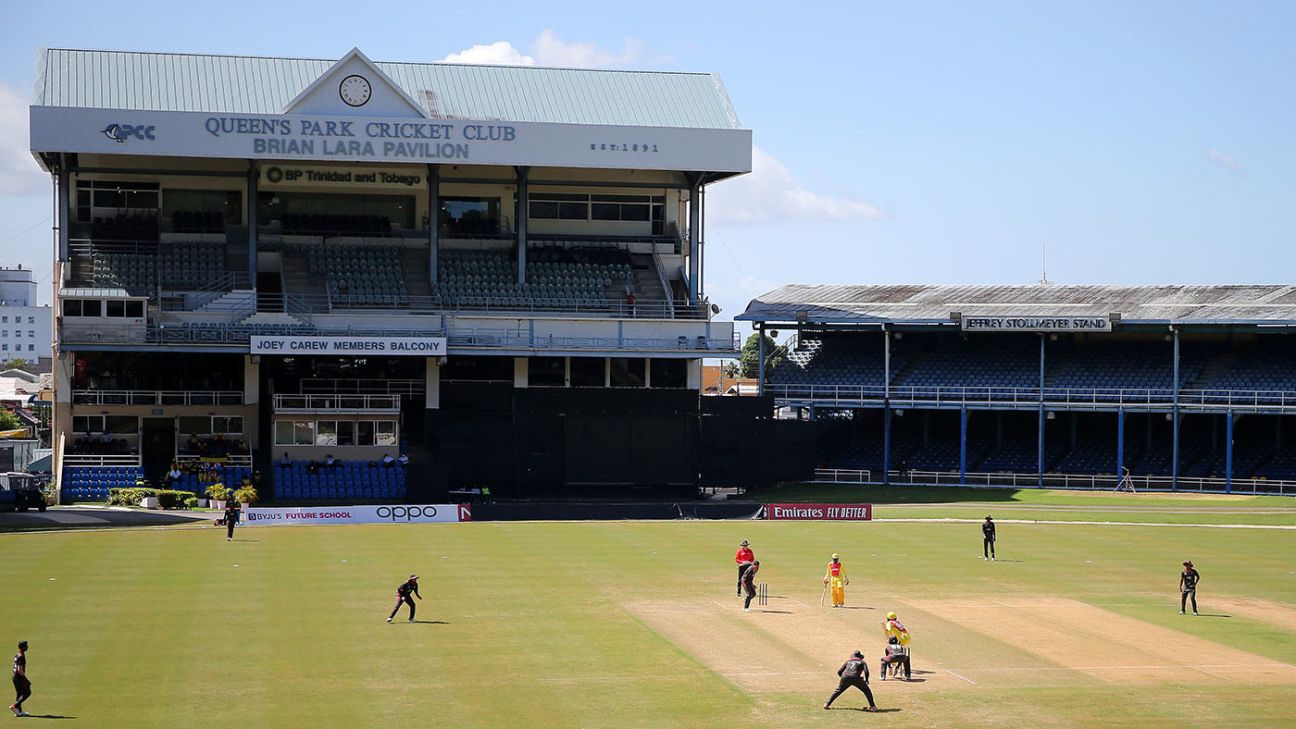Matt Roller
In the museum at Queen’s Park Oval, amongst Brian Lara’s signed bats, a sample of turf from a 2009 Test match and Rolph Grant’s West Indies kits from the 1930s, is a small display comprising two old photographs. It is a small nod to what the museum describes as a day of infamy: “The Bottle Throwing Incident, W.I. vs MCC 1960.”
The occasion was the second Test of the tour after the first was drawn in Barbados. England were bowled out for 382 and on the third day, in front of a crowd of 30,000 people, West Indies collapsed. On debut, the Trinidadian left-arm spinner Charran Singh walked out at No. 9 to a standing ovation: shortly after, he was adjudged run out to the fury of the fans.
There are two framed photos on display at the museum: one of the West Indies team and the other of ground staff sweeping up the glass bottles thrown from the stands onto the pitch. The story goes that a local broadcaster, who described the fans as “hooligans”, failed to account for the fact that many of them were listening to his commentary on transistor radios: they quickly started throwing their bottles at the press box instead.
The atmosphere was not quite so febrile for West Indies’ comeback win over New Zealand at the Brian Lara Cricket Academy in Tarouba, 50km south of Port-of-Spain, on Wednesday night. But it was clear that cricket fans in Trinidad still care deeply about the sport. For all the narrative about the sport’s decline in the region, almost everyone I met during my short stay on the island had an opinion about West Indies’ chances at the World Cup – and most of them were quietly confident.
It is hard to draw conclusions about a country from five nights on a work trip but my overriding impression of Trinidad was of a country seeped in cricket. I had one taxi driver, Ajai, who attended Naparima College in San Fernando with Nicholas Pooran; another, who picked me up at the airport on arrival, was furious at Pakistan’s batters for their failure to chase 120 against India in New York.
It is a shame that Queen’s Park Oval – which is right in the centre of Port-of-Spain, the capital – will not host any fixtures at the World Cup: it is steeped in history and is clearly a proud club, demonstrated by the reserved parking spots for four of its all-time greats in Brian Lara, Sunil Narine, Dwayne Bravo and Kieron Pollard.
But the Lara Academy is an impressive facility in its own right: it was a government-funded project, completed in 2017, and retains the feeling of a ground rather than a modern stadium despite its remoteness. If West Indies qualify for the semi-final there on June 26, it will be a serious party.
Matt Roller is an assistant editor at ESPNcricinfo. @mroller98

